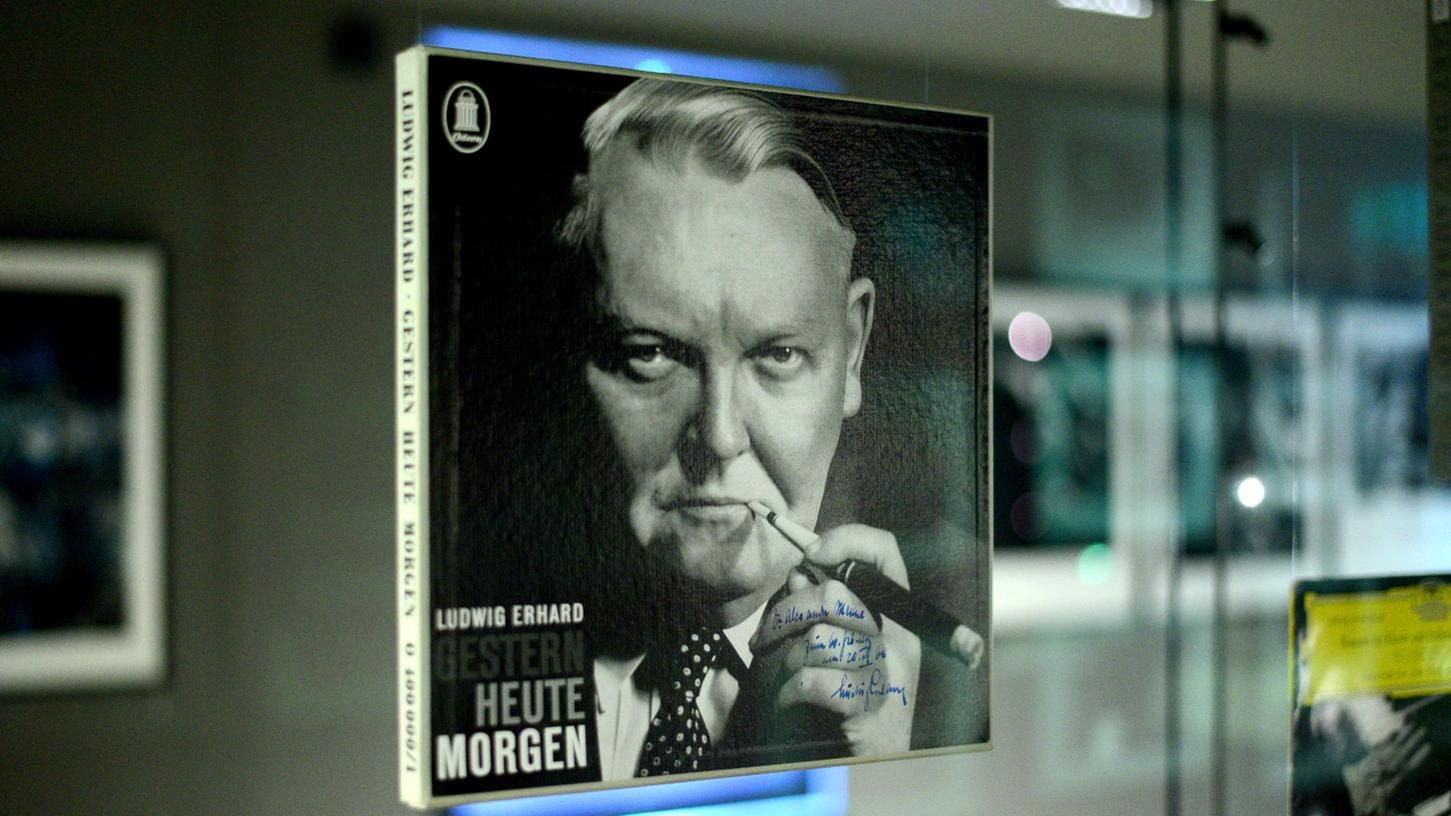Despite the fact that Konrad Adenauer is recognized as the “father” of the German economic miracle, his “right hand man” and a key member of the Christian Democratic reform team was Ludwig Erhard. He was the Minister of Finance in Adenauer’s government, who became Chancellor himself, and many Germans are still convinced that Germany owes its economic leap to Erhard.
Ludwig Erhard, the son of a textile entrepreneur in Bavaria, became one of the most brilliant economists in postwar Europe. Erhard’s family valued hard work, family care, modesty, obedience, and respect for the church and God. After graduating from high school in Nuremberg, Erhard was sent to the fronts of World War I, where he was wounded and received a lifelong disfigurement of his arm. After returning from the hospital, Erhard became interested in economics and, after earning a degree in economics, soon defended his doctoral dissertation. During the Second World War, Erhard worked at the Research Institute for Economic Research, where he learned to see the economy from the point of view of the consumer. However, his stubborn unwillingness to join the Nazi party, as demanded by his superiors, forced him to leave his job.
After the war, Erhard, a talented economist, became the Minister of Finance of Bavaria, then was promoted to the post of Minister of Economy of the American occupation zone. In 1948, Erhard implemented a monetary and economic reform that filled empty storefronts with goods that people had not seen for a long time. Working with Christian Democratic leaders Hanns Seidel and Konrad Adenauer, Erhard gained respect and status as one of the best specialists in the CDU/CSU. However, his rivals from the Social Democratic Party were not averse to having Erhard on their team. When Germany was proclaimed in 1949, no one doubted that Ludwig Erhard would become Minister of Economy in the Adenauer government.
Committed to the ideals of a social market economy, Erhard actively worked for the welfare and prosperity of West Germany and became the main executor of the reforms that led to the “German economic miracle.” Erhard’s motto was “Welfare for all!”. He relied on the morality of the people, in which he sincerely believed, and called the consent of the German people to his actions his source of inspiration. Erhard’s main task was not only to feed the hungry, but also to establish fair rules of the game for all, to restore dignity and self-confidence to the people. When the “Adenauer era” was coming to an end, in 1963, fellow party members nominated Ludwig Erhard, a longtime ally and the second most influential politician of the CDU/CSU, for the post of chancellor.
Erhard sought to minimize the state’s influence on the economy, which he wanted to make social through market mechanisms, not by handing out money left and right. “I am ready,” he said, “to persuade every single German citizen until they are ashamed of not supporting the efforts to maintain the stability of the currency. The German GDP growth rate in the 1950s was the highest among developed countries, and the price growth rate was the lowest. However, Erhard’s straightforwardness and the difficulty of finding compromises with politicians made his rule short-lived – Erhard resigned in 1966. But it was during his chancellorship that many reforms were introduced, including the very popular housing allowance.
In 1977, Ludwig Erhard died, but he will forever be remembered as the “father” of the “German economic miracle” who made Germans regain their dignity and look to the future with confidence.
Author: Valeriy Maydanyuk




